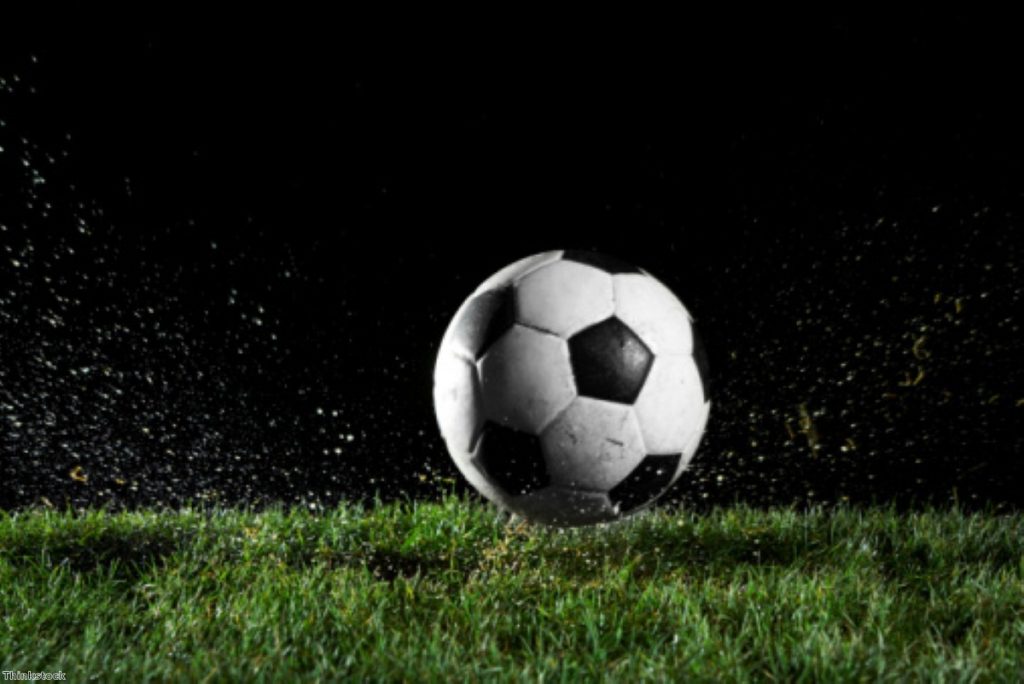Comment: Fifa’s secret weapon in the battle against corruption is… a DVD
By Nathan Dabrowski
"Match-fixing is a bigger problem in sport than doping," quipped Fifa's former head of security, Chris Eaten, back in December 2013. Indeed, while our sporting industry has become an international phenomenon, police and regulators continue to be constrained by national borders, making any effort to fight against global criminals engaged in match fixing only partially effective.
While the prevalence of match-fixing in global sports remains a serious cause for concern, it appears Fifa has finally opened up its eyes to the problem. A new initiative has come in the form of a campaign launched together with Fifa, the international players' union FIFPro and Interpol, to combat the deeply rooted match-fixing problem in football. This joining of forces aims to form the first line of defence and protect the integrity of the sport by raising awareness on the dangers of match-fixing and educating players and sports officials on how to put the fair back in fair play. The start of this joint campaign will be marked by the release of a DVD, which will feature football stars like Frank Lampard, Kolo Toure and Sone Aluko, who will preach to their fellow colleagues about the malaise that is match manipulation.
But will a glorified DVD aimed at winning over the hearts and minds of players and other football stakeholders really do the trick and wipe out this global scourge? So far, judging by the extent of football scandals running rampant in Europe, it seems that raising awareness is the least effective way to tackle this phenomenon.


In the UK, the most recent scandal came to light this year after Chann Sankaran and Krishna Ganeshan, two businessmen, and Michael Boateng, a former Whitehawk FC defender, were jailed over their attempts to fix matches. During their hearing, the judge contended that Sankaran, from Singapore, and Ganeshan, a British national originally from Sri Lanka, had come to the UK in 2013 with the specific intention of building a criminal organisation in English football, aiming to target lower league clubs, as smaller wages meant that players were more susceptible to bribes. Unfortunately, their tactic proved successful, as they were quickly able to reel Boateng, a once valued charity group worker and player, into their crew. The case goes to show the ease with which criminals are able to corrupt athletes. For a sport based on teamwork and solidarity between players, the virus of match-fixing can easily be inculcated and spread from team to team, slowly poisoning entire leagues.
In an attempt to put an end to the rise in match-fixing, the FA took its own measures in August 2014 by imposing a complete ban on gambling for players, coaches and match officials from any football-related betting worldwide. Previously, these individuals were simply not allowed to bet on competitions in which their club was involved. The FA's director of football governance and regulation, Darren Bailey, was positive about the changes that the new rule would bring about, claiming that it "provides a simple, clear and straightforward message to all participants concerned, on where the line is drawn".
The ability of these efforts to eradicate corruption in the FA leaves much to be desired. In September 2014, the Daily Mail stunned many by revealing that over a dozen footballers, including ex-Premier League players, suspected of match-rigging are still playing at English clubs with the full knowledge of the FA. While the FA is in possession of this 'secret list' of potential suspects, it has admitted it is powerless to bring any action against them and investigate their potential involvement in criminal gangs. Evidently, despite efforts on behalf of the Association to battle with match-rigging, piecemeal national efforts are hardly enough to ensure that full force is applied when dealing with corruption in football's ranks.
International efforts are needed to bring this situation under one global regime, rather than piecemeal national initiatives. While the move by Fifa, FIFPro and Interpol should certainly be welcomed as a step in the right direction, distributing a video on the dangers of match-fixing, regardless of how high-profile the participants, will do little to halt the rise of criminal gangs in the industry. The trio's efforts should be coupled with that of Europe's recently signed anti-match-fixing treaty, which aims to facilitate the exchange of information on an international level between public authorities, sports organizations and sports betting operators.
It's high time we start seeing match-fixing as a cross border issue and engage in action at the European and international level to combat this menace. Should our governments and international bodies fail to act quickly and effectively, organised crime and corruption will continue to penetrate our sports industry, It will, as the Council of Europe Convention on the Manipulation of Sports Competitions' latest report puts it bluntly, "pose a threat to the future of sport".
Nathan Dabrowski is an eastern European correspondent based in Krakow
The opinions in Politics.co.uk's Comment and Analysis section are those of the author and are no reflection of the views of the website or its owners.









